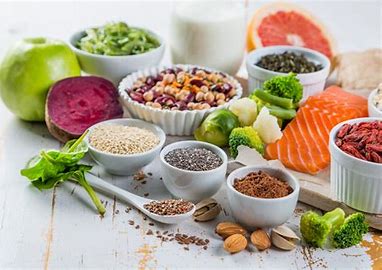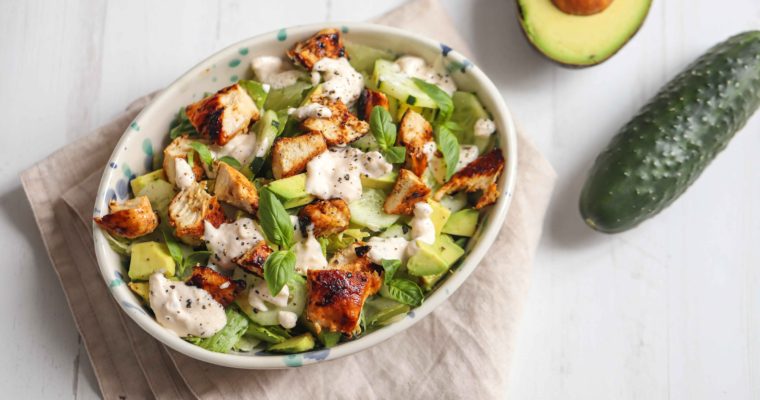Nutrient-dense foods such as fruits and vegetables are the opposite of energy-dense food (also called ” empty calorie ” food), such as alcohol and foods high in added sugar or processed cereals.
A nutrient-dense diet requires you to choose the foods you consume based on the micronutrients it contains in each calorie. Such a diet does not focus on counting calories or preferring low-fat food or raw foods. Instead, it involves eating a good variety of foods that offer high nutrient density.
There is only a limited amount of food you can eat in a single day. To maximize the amount of nutrients you take in, it makes sense to spend your calorie budget wisely. The best way to do that is to simply eat the foods that carry the greatest amount and variety of nutrients.
Here are the 11 most nutrient-dense foods on the planet.
Salmon
Salmon — and other fatty types of fish — contain the greatest amount of omega-3s fatty acids. Omega-3s are extremely important for the optimal function of your body. They’re linked to improved wellbeing and a lower risk of many serious diseases
A 100-gram piece of wild salmon contains 2.8 grams of omega-3s, along with lots of high-quality animal protein and ample vitamins and minerals, including large amounts of magnesium, potassium, selenium and B vitamins.
Kale
It is loaded with vitamins, minerals, fiber, antioxidants and various bioactive compounds. Kale may be even healthier than spinach. Both are very nutritious, but kale is lower in oxalates, which are substances that can bind minerals like calcium in your intestine, preventing them from being absorbed.
Seaweed
It is also loaded with various bioactive compounds, including phycocyanin’s and carotenoids. Some of these substances are antioxidants with powerful anti-inflammatory capacities.
Just eating a high-iodine seaweed like kelp a few times per month can give your body all the iodine it needs.
Garlic
It is high in vitamins C, B1 and B6, calcium, potassium, copper, manganese and selenium. Garlic is also high in beneficial sulfur compounds such as allicin.
Garlic is both tasty and healthy. It is highly nutritious, and the bioactive compounds in it have confirmed disease-fighting properties.
Shellfish
Shellfish are some of the most nutritious animals found in the sea. They are very high in important nutrients like vitamin B12 and zinc.
Clams are among the best sources of vitamin B12 in existence, with 100 grams of clams supplying over 16 times the RDI. They are also loaded with vitamin C, various B vitamins, potassium, selenium and iron.
Potatoes
A single large potato is high in potassium, magnesium, iron, copper and manganese. It also contains vitamin C and most B vitamins.
They are also one of the most filling foods. When researchers compared the satiety value of different foods, boiled potatoes scored higher than any other food measured.
Liver
Out of all the organs, liver is by far the most nutritious. The liver is a remarkable organ with hundreds of functions related to metabolism. One of its functions is to store important nutrients for the rest of your body. Eating liver once per week is a good way to ensure that you get optimal amounts of these vital nutrients.
Sardines
Sardines are small, oily fish that can be eaten whole. They contain a little bit of almost every nutrient that your body needs and are nearly nutritionally perfect. Like other fatty fish, they’re also very high in heart-healthy omega-3 fatty acids.
Blueberries
Although not as high — calorie for calorie — in vitamins and minerals as vegetables, they’re packed with antioxidants.
They are loaded with powerful antioxidant substances, including anthocyanins and various other plant compounds, some of which can cross the blood-brain barrier and exert protective effects on your brain.
Egg yolks
Egg yolks have been unfairly demonised because of their cholesterol content. Eating moderate amounts of cholesterol doesn’t raise the “bad” LDL cholesterol in your blood
Egg yolks are loaded with vitamins, minerals and various powerful nutrients, including choline.
Dark chocolate (cocoa)
Dark chocolate with a high cocoa content is one of the most nutritious foods you can eat. It is loaded with fiber, iron, magnesium, copper and manganese.
Make sure to get dark chocolate with at least 70% cocoa content. The best ones contain 85% cocoa or higher. Eating a small square of quality dark chocolate every day may be one of the best ways to supplement your diet with additional antioxidants.
The bottom line
If you want lots of nutrients without many calories, the most obvious strategy is to take dietary supplements.
However, supplements can hardly replace a healthy diet. A better way to get all the nutrients you need is to fill your meals with nutrient-dense foods.
Nutrient-dense foods are rich in nutrients relative to their calorie content. These include various healthy foods such as whole vegetables, fruits, cocoa, seafood, eggs and liver.





